Sebastopol's community apple press is a free way to make fresh juice
Operated by Slow Food Russian River, the press will be open on Saturdays and Sundays through October
Gather your apples! Your Honeycrisp! Your Fuji! Your Golden Delicious! Even your hopefully-ripe-by-now Gravensteins!
Why? Because, as of this past weekend, Slow Food Russian River’s (SFRR) Community Apple Press is up and running.
Situated on the grounds of the Luther Burbank Experiment Farm, their simple, timeless and efficient machine offers a free opportunity for residents living anywhere in the region to squeeze their own apples into fresh juice.
Following their appearance at the Gravenstein Apple Fair this coming weekend, Bob Burke will be leading the press operation, which he says was, for a decade, the only community-oriented press of its kind in the entire country before Petaluma Bounty added one of their own a couple of years ago.
A group of SFRR volunteers, which features a rotating cast of over 70 people, will operate the press on Saturdays and Sundays. Wanna-be juice makers can make a reservation for a 20-minute time slot. Each group can bring as many as 100 pounds of apples, although Burke’s team said that anything less than 150 pounds should be fine.
“It operates on weekends in August, September and October,” Burke said. “Anybody can bring their apples, use the press for free juice, take it home in their containers. A lot of people collect it in plastic containers and freeze it and enjoy it throughout the year.”
The workings of the apple press are quite simple, which makes it a fun activity for kids as well as adults. In fact, SFRR is opening the press up on Friday mornings from 9 to noon through October to be used by schoolchildren in the surrounding area.
“We do it as a community resource,” said Burke. “We want it to be available to as many residents and visitors as possible. We don’t want any commercial operations coming in and monopolizing it.”
Making the juice is more or less a two-step process. First, all of the apples are tossed into the chipper, which turns all the apples into a mush called “pomace.” Then, using a large, t-shaped screw, the pomace is pressed down upon by a wooden circle with a slightly smaller circumference than the basket. The juice bleeds out through the bottom of the basket and drips through a filter into whatever container sits beneath the machine. The pomace is then composted.
With SFRR’s brand-new website, making a reservation for the press is easier than ever. As of yesterday, a few slots were still available for the weekend of August 17.
SFRR is a local branch of Slow Food International, which started in Europe as a way to counter the proliferation of American fast food restaurants like McDonald’s.
“The primary philosophy of Slow Food is to promote food that is good, clean, and fair,” said Burke. “Good food is food that is healthy and delicious; food is clean when it doesn’t damage or destroy the environment when it’s being produced; and it’s fair when people can afford it, and when the people growing or processing the food make a decent wage.”
Sebastopol’s apple press is part of a larger endeavor to protect the Gravenstein apple, which Slow Food International has officially recognized as one of six endangered heritage foods in the United States.
The fate of the Gravenstein has been further threatened by a decision made this year by Manzana to move all of its operations to Washington state and to shut down its facility in Graton.
“If we want to keep our apples, we have to find a way to press the apples that [Manzana] did,” said Carole Floherty, the head of Slow Food’s initiative, Save Our Orchards Now. “That immediate load is about 4,500 tons. We have an extra year because Manzana has just delayed their move until 2026. We need people to raise their voices.”
For more information, contact SFRR at info@slowfoodrr.org.


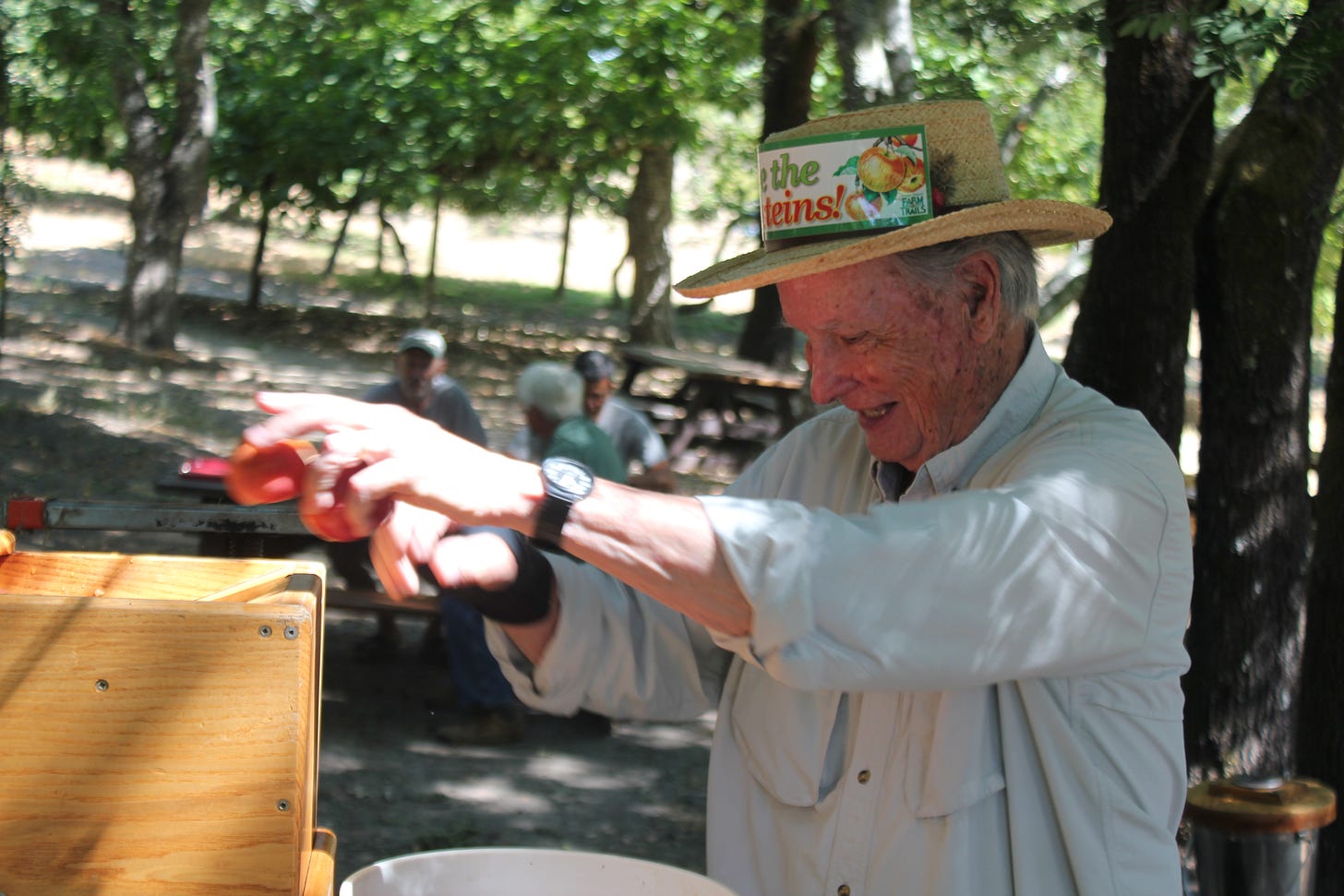
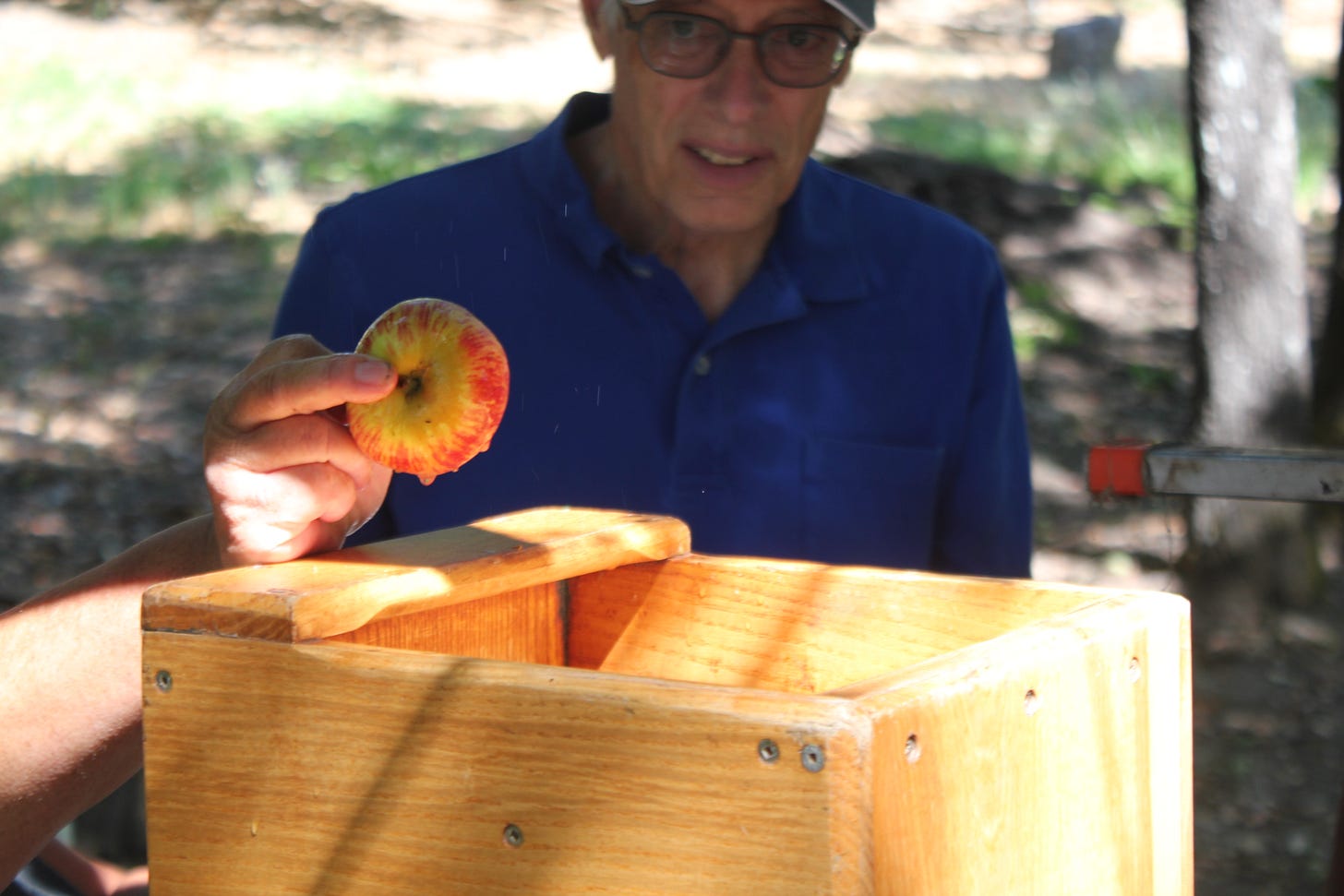
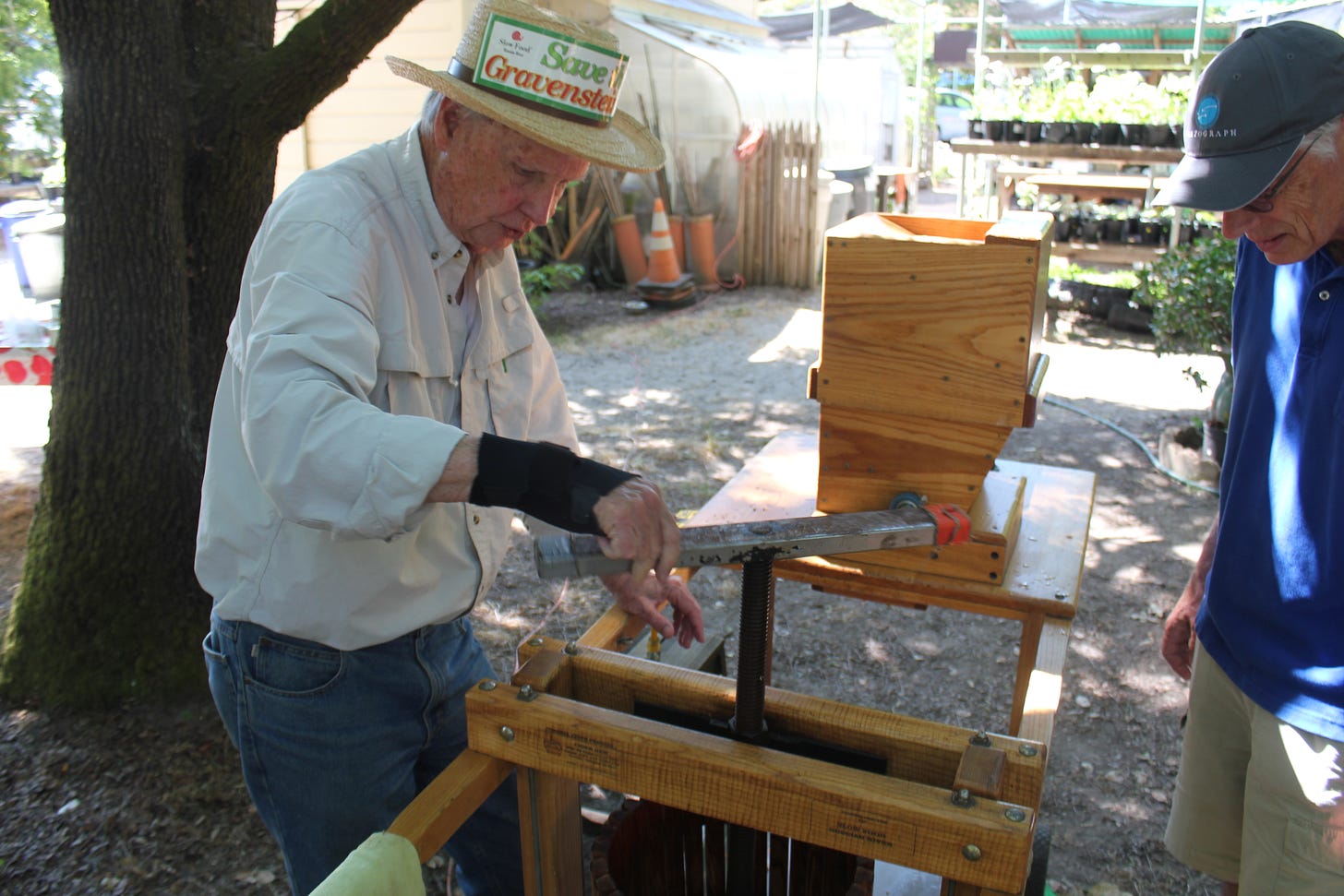
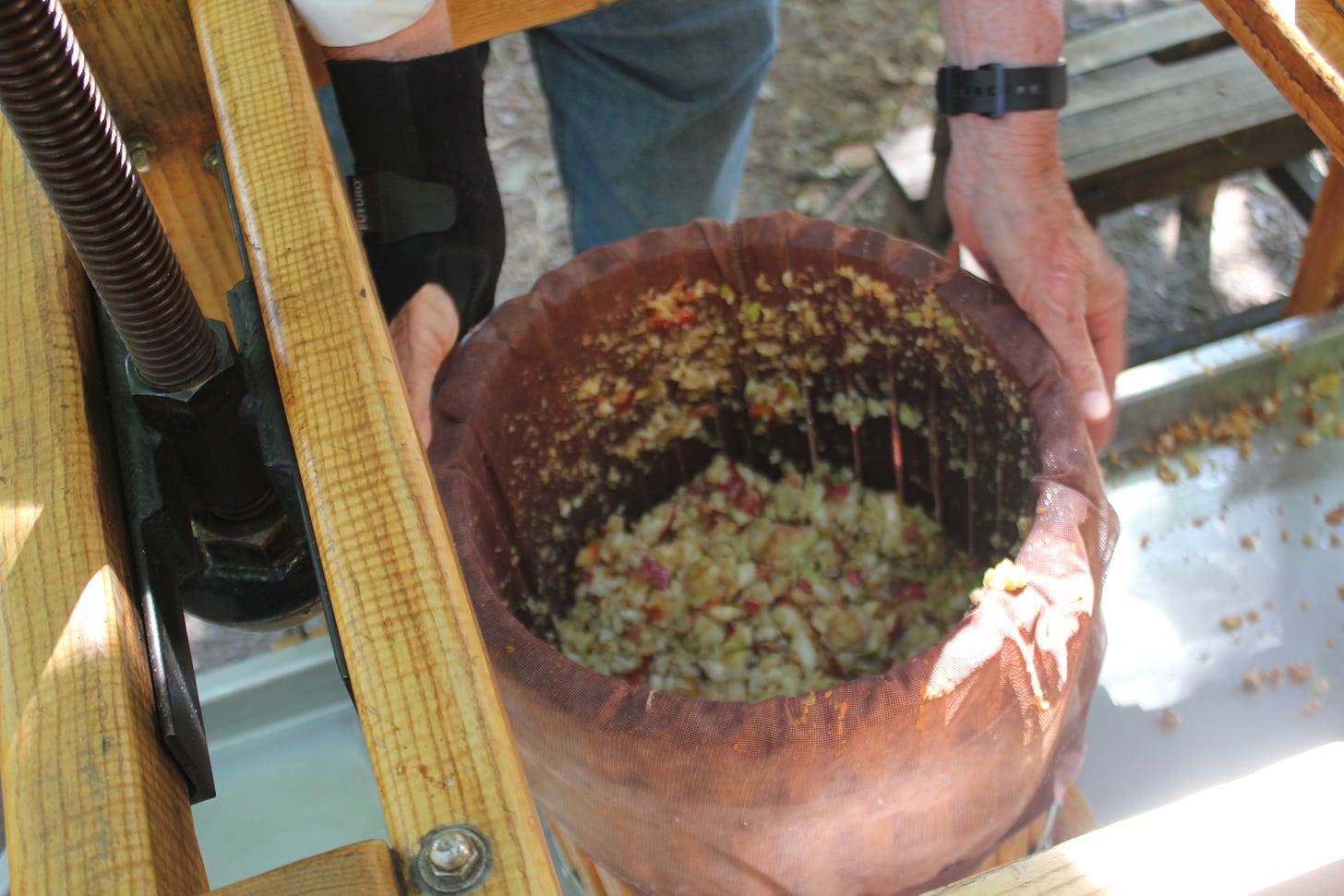
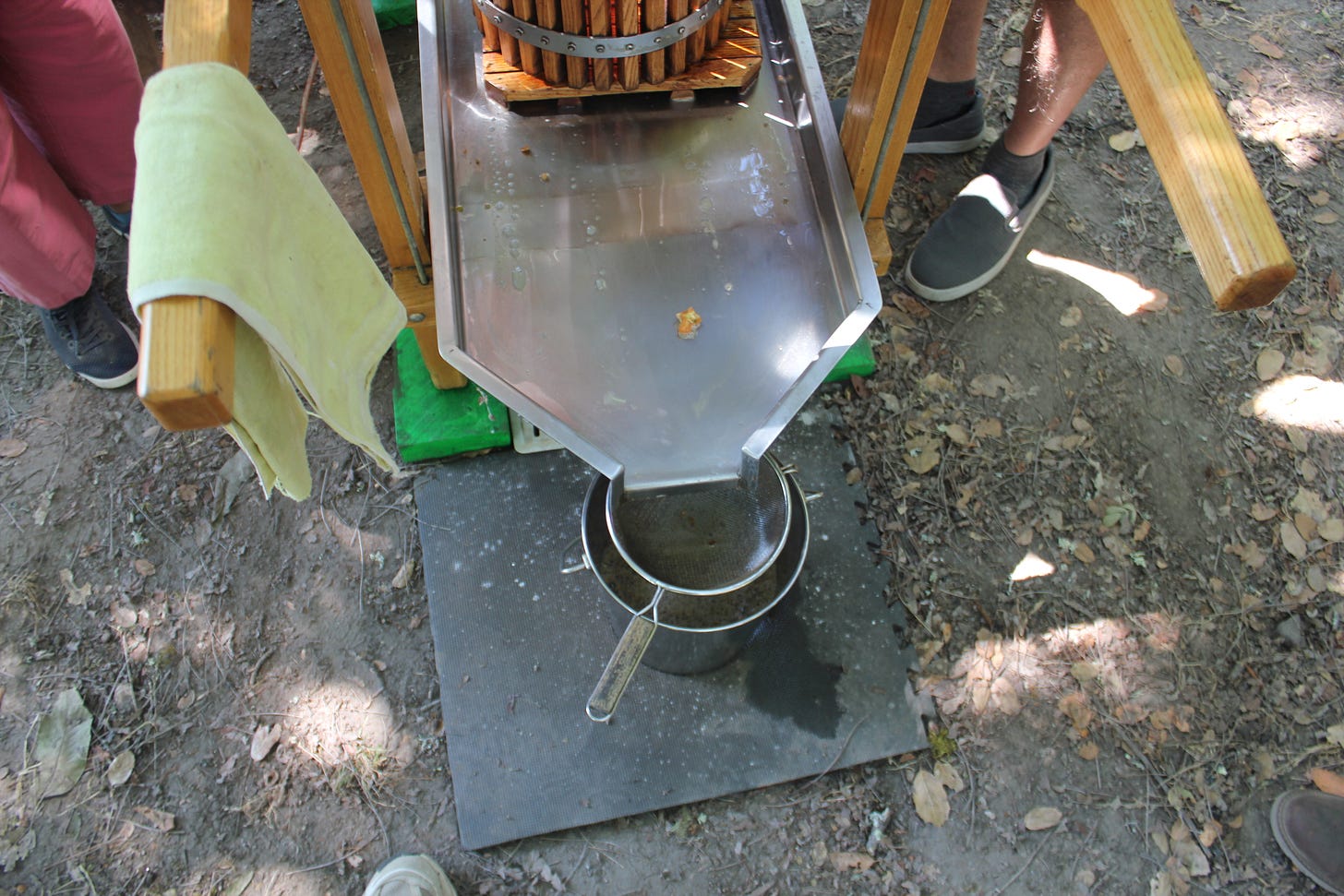
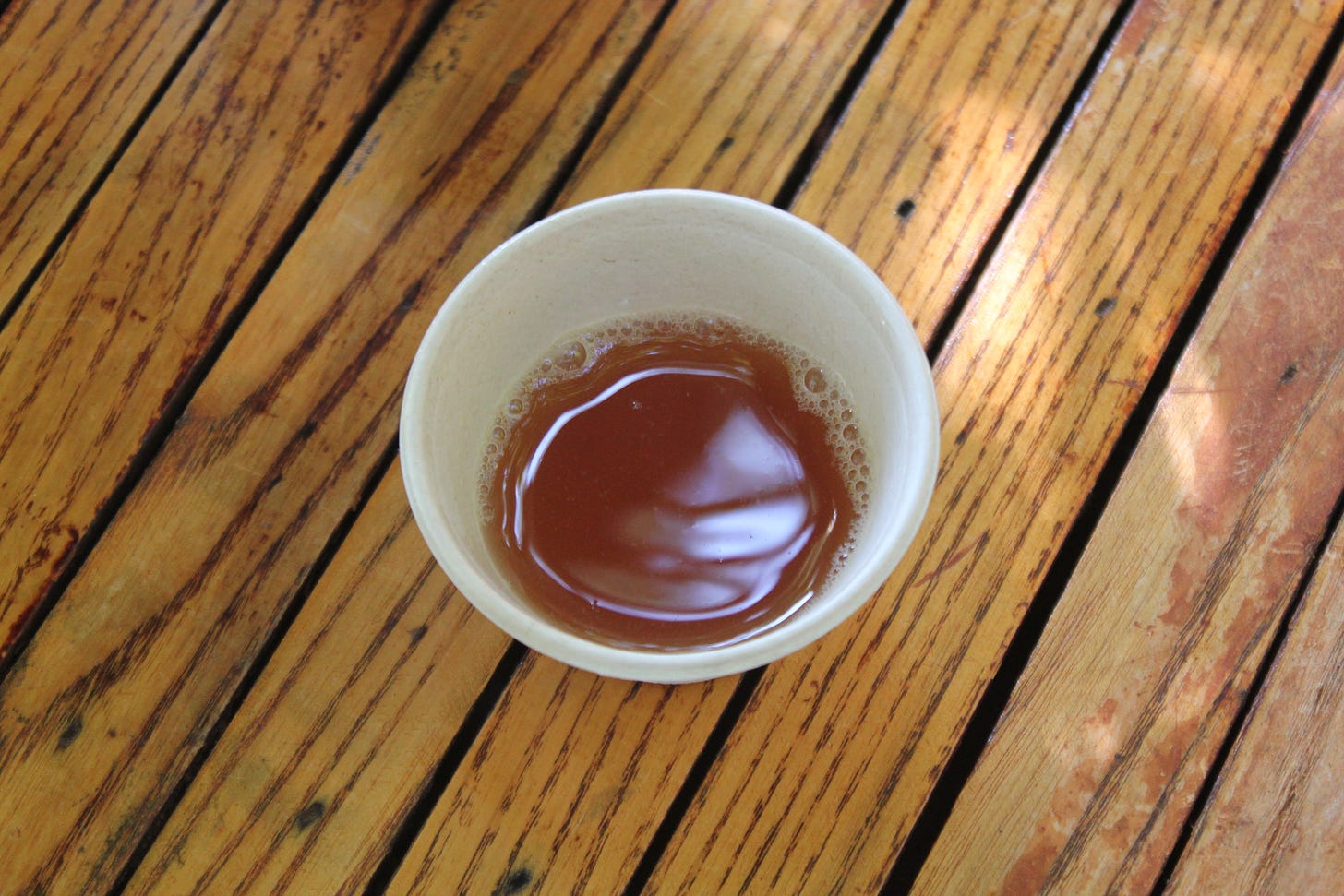

This is such a GREAT project of Slow Food Russian River! Thanks for this wonderful article!